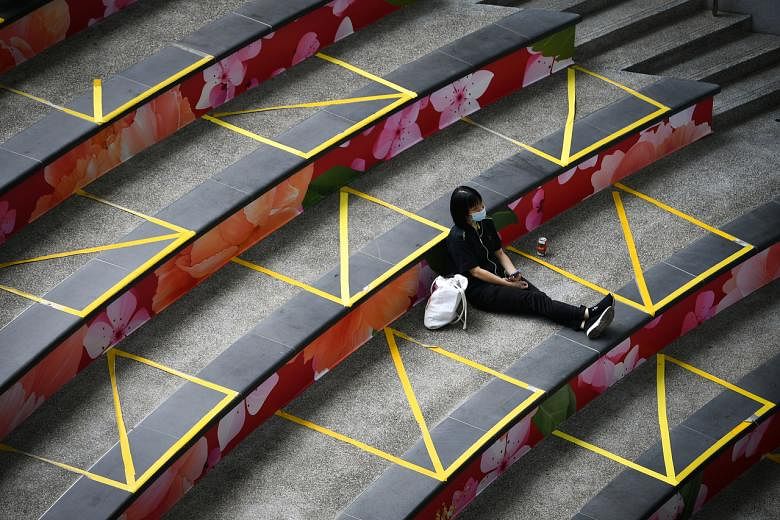SINGAPORE - The nation is still en route to living with endemic Covid-19, but must be prepared to make adjustments along the way, Minister for Trade and Industry Gan Kim Yong said at a virtual press conference on Tuesday (July 20).
Mr Gan, who is co-chairman of the multi-ministry task force tackling Covid-19, was responding to a question on whether it is still too early to talk about an "endemic era" for the coronavirus.
The reporter who raised the question also highlighted the fact that the authorities had said on multiple occasions that Singapore must learn to live with the virus, but had also made numerous changes to the restrictions within a short period of time.
In response, Mr Gan said: "I think we are on an expressway towards the final objective of endemic Covid-19. But along the way, there will be bumps, and sometimes you may have roadblocks, you may have obstacles, and you may need to make a detour.
"But eventually, when we overcome the roadblocks, we will come back to the expressway and continue the journey."
He said the need remained to be flexible and respond quickly as the situation evolved in order to keep it under control.
"So I think we need to continue to plan ahead for our endemic road map, but at the same time, be prepared to make adjustments along the way in response to the evolving situation," he said.
Earlier in the press conference, he had also said Singapore still needs to keep infections under control to protect people who are not vaccinated, especially the elderly.
"Once we have slowed down the new clusters and hit higher vaccination rates, we will be able to continue with our reopening journey," he added.
His fellow co-chairman, Health Minister Ong Ye Kung, also said Singapore is on the journey to a Covid-19-resilient economy and society.
"I know it may not feel like it, and we seem to move forward and backward a bit, one step back, three steps forward, two steps back, but the fact is we are on it," he said.
It is because Singapore is already on this journey that there is no need to resort to a circuit breaker, where most activities come to a halt, to tackle the recent surge in cases.
"We need not look back at closing down manufacturing, closing down offices, closing down construction activities. We've put that behind us with effective measures," he said.
The task force said it would provide additional support for businesses that are affected by the new restrictions, and that details are currently being discussed.
At this stage, said Mr Ong, a circuit breaker would be neither necessary nor helpful.
"The circuit breaker affects manufacturing, affects construction and many other sectors of the economy, of which there are now also safety protocols... many of them are in settings where they are highly vaccinated. So they are actually in a much more resilient position (and) we had never contemplated the need to go back to closing them down," he said.
Mr Ong also noted that the current rate of vaccination made Singapore much more Covid-19-resilient now than it was in the past, and that it must continue to improve in this area.
"As we progress along this expressway, further down the road you'll find that we get more and more resilient and a cluster like this will become less and less a factor in leading to industries having or sectors having to suspend their operations," he said.
What last year's circuit breaker restrictions were like
•People were allowed to leave their homes only for essential reasons
•People could not enter another person's home except to provide assistance to seniors or those with disabilities, to deliver essential goods or services, or in an emergency
•All social gatherings were banned
•Stores providing non-essential services had to close
•Basic military training was suspended
•Face-to-face private tuition was suspended
•Schools shifted to home-based learning
•No dining in was allowed
•Most workplaces were shuttered
•Sports stadiums, public swimming pools and sports halls, private gyms and fitness studios all had to close
Read next: What you need to know about Singapore's Covid-19 rules from July 22












